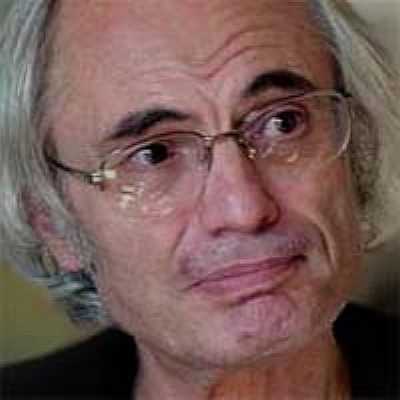
F or that which befalleth the sons of men befalleth beasts also.Last night violinist Patricia Kopatchinskaja gave a brilliant Irish premier performance of the 2006 concerto by composer Tigran Mansurian entitled ‘Four Serious Songs’.
Even one thing befalleth them all;
The one dieth, so dieth the other,
Yea, they have all one breath so that a man has no preeminence above a beast,
For all is vanity.
All go unto one place;
All are of the dust,
And all return to dust again.”
— Ecclesiastes 3:19-22.
- Four Serious Songs (vioin concerto, after Brahms, Vier ernste Gesänge, Op. 121)
- For that which befalleth (Eccl. 3:19-22), 6-min
- So I returned and considered all the oppressions (Eccl. 4:1-3), 7-min
- O Death, how bitter is the remembrance of thee to a man that lives in his possessions (Eccl. 41:1-2), 2-min
- I am become as sounding brass or a tinkling cymbal (1 Cor 13:1-3,12-13), 5-min
Finally, the concluding fourth movement: in the beginning, it is ethereal, vaporescent. Violins and violas in ultra-high registers; close encounters at the upper extremities of their fingerboards. The cellos hold forth with whisperings that emulate a cold wind, utterly heartless—strings damped by the fingers so as to produce a pitchless sound, gray noise of the bow drawn lightly, on-edge against the string. Law of the Universe, the die has been cast; things in motion tend to stay (heartlessly) in motion; no reprieves. A more desolate, time-beyond-humankind effect would be hard to imagine.
Then the strings, together as a choir, respond in a subdued major key. Maybe there is hope after all, for humans and for other species as well…
But, no, it’s not to be. The major-key chordal writing gives way to impassioned, violent atonal passages and a resolution in a dour, uncertain minor. Agonal gasps; the length of the bow is consumed, millisecond by millisecond: kinesthetically an analogue of lung capacity, the bow with its limits to inspiration (up-bow) and expiration (down-bow). Struggling for breath, exhausting what little is left of the length of your bow-stroke. All species may go down together, but that does not mean that no one is guilty, that no one is to blame for this destruction. We humans are irredeemably at fault: thus spake the prophet Mansurian.

Kopatchinskaja’s treatment was superb. The bare feet under Patricia’s red gown were a bit unconventional, although I can readily understand how the sensation of the cold floor under the soles and toes may be crucial to informing her interpretation. If one wants to be forcibly grounded in the decumbent, ascetic, prostratory mood of this apocalyptic ecopolitical Mansurian piece, then one should play one’s violin barefoot on a cold floor in an old, cold church!

Kopatchinskaja has recently served as guest director and soloist with the Australian Chamber Orchestra. She was born in Moldova.

Born in Beirut in 1938, in 1947 Mansurian’s family moved to Armenia. Mansurian took his PhD at the Yerevan State Musical Conservatory where he later taught contemporary music analysis. Now prominent among Armenian composers, Mansurian’s output includes orchestral works, seven concerti for strings and orchestra, sonatas for cello and piano, three string quartets, madrigals, chamber music and works for solo instruments.

- Violins: Katherine Hunka, Karl Sweeney, Róisin Walters, Ionana Petcu-Colan, Maria Ryan, David O Leary, Siún Milne
- Violas: Joachim Roewer, Ruth Gibson, Lucy Nolan
- Cellos: Eoin Quinlan, Peggy Nolan
- Double-bass: Malachy Robinson
- Patricia Kopatchinskaja website
- Tigran Mansurian page at Schirmer
- West Cork Music Festival
- Radio Television Éirann RTÉ
- Contemporary Music Centre Ireland
- Haraway D. When Species Meet. Univ Minnesota, 2007.
- Kamm F. Intricate Ethics: Rights, Responsibilities, and Permissible Harm. Oxford Univ, 2007.
- Lawlor L. This Is Not Sufficient: An Essay on Animality and Human Nature in Derrida. Columbia Univ, 2007.
- Ryder R. Animal Revolution: Changing Attitudes Towards Speciesism. 2e. Berg, 2000.
- Singer P. In Defense of Animals: The Second Wave. Blackwell, 2005.
- Sollund R. Global Harms Ecological Crime and Speciesism. Nova, 2008.
- Zamir T. Ethics and the Beast: A Speciesist Argument for Animal Liberation. Princeton Univ, 2007.

No comments:
Post a Comment